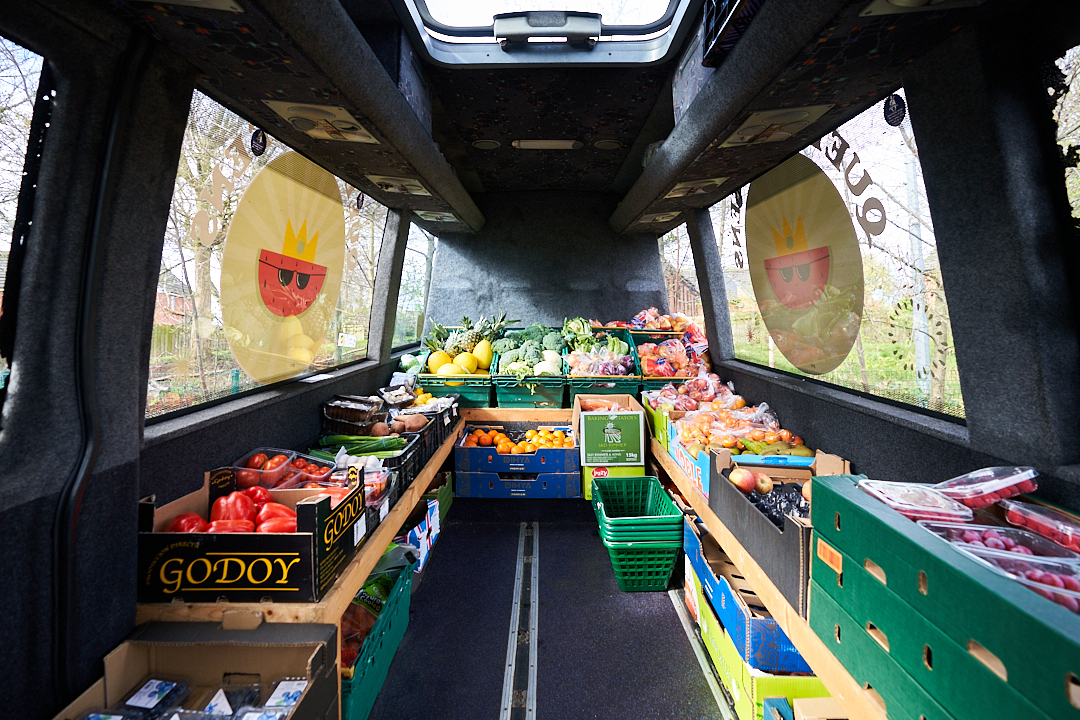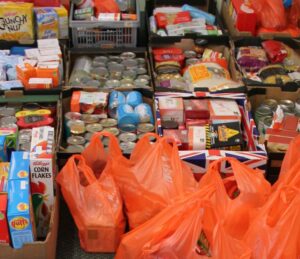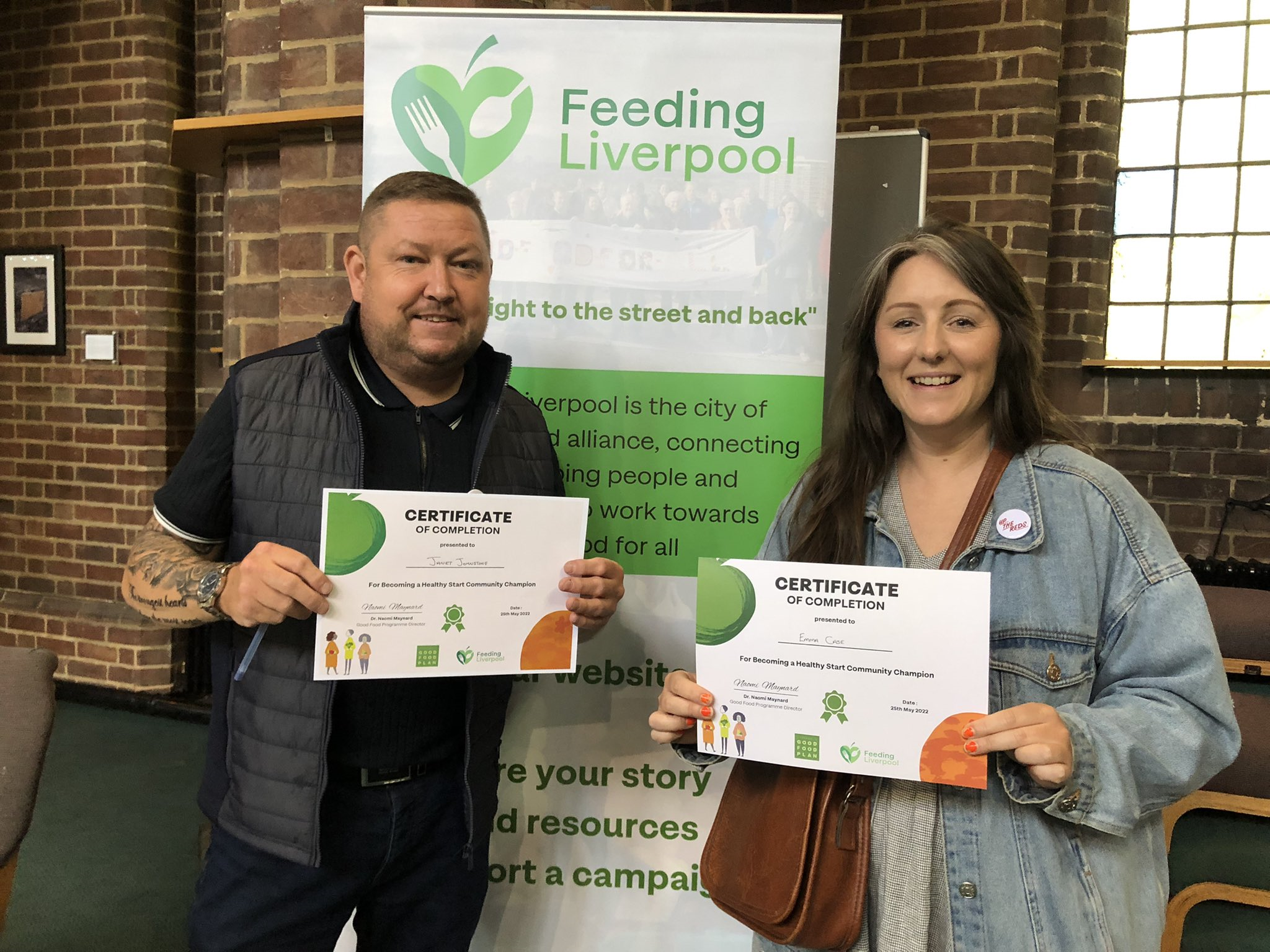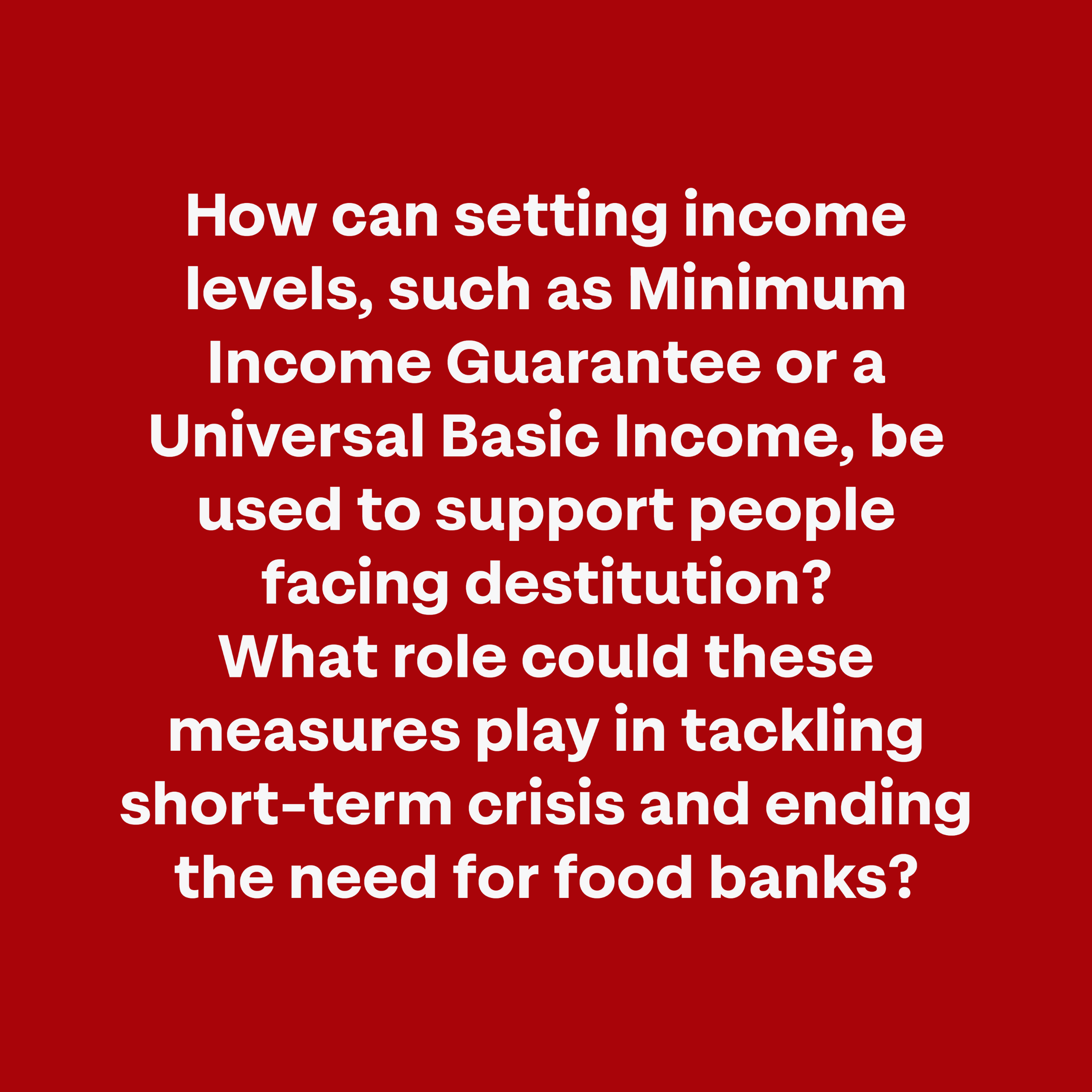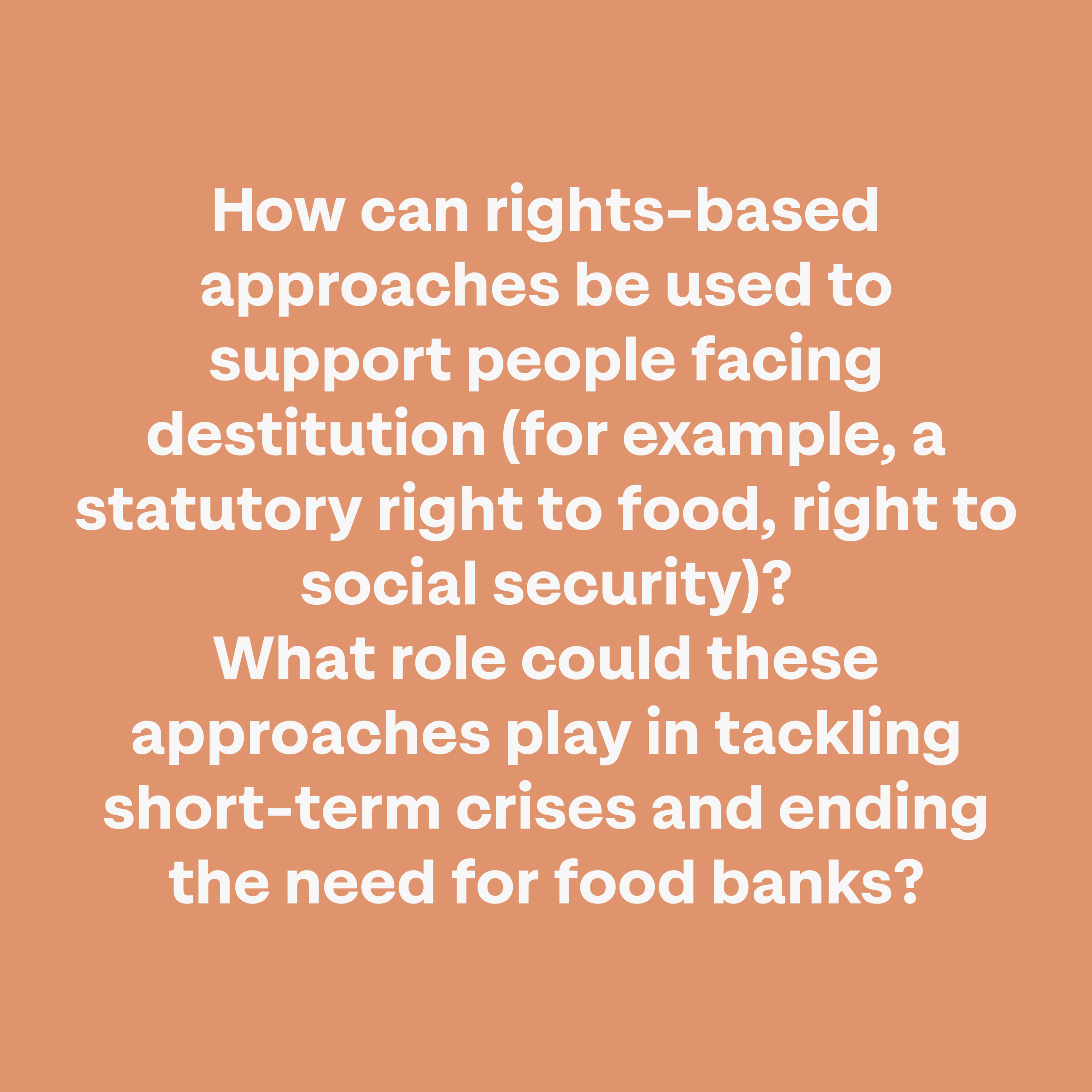Feeding Liverpool recently submitted three submissions to the All-Party Parliamentary Group inquiry into ending the need for foodbanks. A wide range of opinions have been offered about the best way forward for ending the need for foodbanks – this work will form the foundations for a wider review of our city’s crisis response.
This series of blogs is taken from the Good Food Community Advocacy and Policy Group submission.
How can setting income levels, such as Minimum Income Guarantee or a Universal Basic Income, be used to support people facing destitution? What role could these measures play in tackling short-term crisis and ending the need for food banks?
Response written by Revd Dr Tony Bradley, Senior Lecturer in Business, Liverpool Hope University and member of the Good Food Community and Advocacy Policy Group
There has been a significant debate, globally, on the introduction of various forms of guaranteed income or, even Universal Basic Income (UBI) schemes, particularly since the Financial Crash of 2008-09. Several experiments have been introduced in countries as diverse as Canada, Finland and Kenya. Most recently, the Welsh Senedd has introduced a scheme to provide a guaranteed income scheme for care leavers, at the age of 18, to enable them to have a baseline income, to help them, as they leave care and begin independent living.
This scheme, launched in June 2022, has the aim of avoiding the ‘cliff edge’ of moving young people from local authority institutional living, into the adult world, often with no immediate support network around them. The Welsh experiment had been, initially, trailed as one involving UBI[1]. But, this confused a range of policy objectives. David Deans[2] of BBC Wales Politics commented on May 17, 2021:
“Plans are at an early stage, but it seems unlikely it would be a large-scale project. A spokesman for the Welsh government said: “We have followed the progress of universal basic income pilot projects around the world with interest and believe there is an opportunity to test the concept in Wales. There is more work to be done in this area but we are interested in developing a small pilot, potentially involving people leaving care.” In the event, the Welsh scheme has been reported, widely, as an example of UBI, when it is no such thing.
The basics
“Under a UBI system, every citizen, regardless of their means, receives regular sums of money for life to cover the basic cost of living. Its proponents argue that it can alleviate poverty and give people time to retrain and adapt to changing workplaces, be more creative and become more active and engaged. Jonathan Williams, co-founder of the Cardiff UBI Lab, part of the UBI Lab Network, comments: “It’s a 21st-century solution to 21st-century problems – it could be our generation’s NHS…Our generation needs a policy that is going to help people and I think this could really invigorate entrepreneurialism and help local economies.”” (Harris, 2020)[3].
Fundamentally, UBI is a cash benefit provided without conditions to everyone. This conflicts with the essential basis of British welfare policy, which is selectivist in nature, and mistrustful of the universalist principle. As far back as the Elizabethan and Victorian Poor Laws, British social policy has sought to differentiate between ‘the deserving’ and ‘the undeserving’ poor. In the recent past there have been upsurges of populist media outrage, at “overly generous welfare payments”, in terms of “scroungerphobia” (Deacon, 1978, Becker and MacPherson, 1985, Littler and Williamson, 2017, Kaufman, 2021[4]).
But, contemporary shifts in the relationship between work, welfare, fiscal policy and the current debates over cost-of-living crises, food insecurity and shortages – because of supply chain shocks, such as the Ukraine war – have all played into a redrawing of the narrative. The threat to many sources of employment from AI-based automation and changes to the nature of work have led to increasing interest in UBI. Nevertheless, there remains a prevailing attitude that welfare – especially in any universalistic form – leads to people becoming feckless, lazy and workshy.
The debate
The recent experiment with UBI, in Finland, exposed a core fault-line in the debate. In Finland 2,000 people were given a monthly flat payment of €560 (£490; $634 at the time) from January 2017 to December 2018. The aim was to see if a guaranteed safety net would help people find jobs, and support them if they had to take insecure work. The Finnish experiment was declared unsuccessful, by many in the UK. It did not lead to people becoming more motivated to seek work, all it did was make people feel happier and less worried about the future! In other words, there is a clear divergence between those who see the purpose of basic income as a driver to increasing employment or to improving well-being.
Nor does this split reflect conventional political divisions. Sam Bowman[5], of the right-wing think-tank, the Adam Smith Institute, wrote in 2013:
“The ideal welfare system is a basic income, replacing the existing anti-poverty programmes the government carries out (tax credits and most of what the Department for Work and Pensions does besides pensions and child benefit). This would guarantee a certain income to people who have no earnings from work at all, and would gradually be tapered out according to earnings for people who do have an income until the tax-free allowance point, at which point they would begin to be taxed”. This is a selectivist, not a universalist standpoint, but since 2013, views have shifted towards UBI, even on the Right. Indeed, the idea of a Negative Income Tax was introduced by Milton Friedman, the high-priest of free-market thinking, and of Reagonomics and Thatcherism, in the 1970s.
The reality
So, could some form of basic income be a better way to address food poverty and insecurity than the presence of food banks, pantries and the like? The blunt fact is that despite the various experiments, the overriding limiting factor is cost. The Welsh Government’s new policy is, probably, the most large-scale attempt to introduce basic income anywhere in the world, to date. But it is minimalist in extent, being confined to 18-year olds leaving social care. Clearly, it represents a significant watering-down of Mark Drakeford’s initial thinking.
Furthermore, Wales cannot fundamentally change the welfare system for its own citizens, under current devolution arrangements. Benefits are controlled from Westminster not Cardiff. At the time of the announcement of the Welsh pilot, a spokesperson for the Department of Work and Pensions said: “We have no plans to introduce a universal basic income. It would not incentivise work, target those most in need in society, or work for those who need more support, such as disabled people and those with caring responsibilities…our approach to welfare recognises the value of supporting people into well paid work, whilst protecting the most vulnerable in society.” It is selectivism writ large.
Another approach would be to provide all households with food vouchers, which could be redeemed at supermarkets and other retail outlets. This was the approach taken during WW2, with rationing. The administration of such schemes is enormous. Furthermore, it flies in the face of the principles surrounding the introduction of “Universal Credit” (which is neither universal nor credit!). Such voucher schemes have the advantage of connecting income payments directly to specific social need. But they are, often, seen as wasteful, cumbersome and, fundamentally paternalistic, rather than trusting people to spend their own money in the most “appropriate” ways.
Despite the ingenuity and forward-thinking nature of many attempts to introduce basic income – and nothing, to date, on the scale of a national UBI – it is likely to flounder on the bases of cost and Britain’s reticence towards universalistic welfare provision. Perhaps, the most egalitarian and progressive policy would be to introduce a negative income tax, which our system of tax thresholds attempts. Nevertheless, the current Government has brought more people into the higher rate tax bracket than at any time since the 1940s, according to the Institute of Fiscal Studies, by 2019 (Sandlin, 2019)[6]. Currently, the Office for Budget Responsibility (OBR), the Government’s own financial adviser, estimates that this will be, officially, the case by 2026 (Timmins, 2022)[7].
So, national policy is, currently, running counter to the principles of basic income. Given this policy backdrop and the current shocks to household income, it is hard to see that UBI, or anything like it, can be seen as a replacement for the, admittedly, shameful requirement for extensive networks of foodbanks across the UK. That is the depressing political economy of Britain in 2022. One which seems to consign ever greater numbers of the poorest to a reliance on handouts, rather than the dignity of having a basic income to live on, which they can spend in the ways that they see fit, mostly on food, heating, rent, clothes and fuel.
[1] Morris, S (2021) Wales to launch pilot universal basic income scheme. Guardian online. 14 May; Winckler, V (2020) Some thoughts on a UBI for Wales. The Bevan Foundation. 15 June.
[2] Deans, D (2021) Welsh Universal Basic Income pilot could focus on care leavers. BBC New Online. 17 May.
[3] Harris, J (2020) Why universal basic income could help us fight the next wave of economic shocks. Guardian online. 3 May; Murray, J (2020) Our generation’s NHS: support grows for universal basic income. Guardian Online. 10 August.
[4] Deacon, A, (1978) The scrounging controversy: public attitudes towards the unemployed in contemporary Britain. Social Policy & Administration, 12, 2, 120-135 ; Becker, S. and MacPherson, S., 1985. Scroungerphobia‐where do we stand”?. Social Work Today, 18(2), p.85; Littler, J and Williamson, M (2017) Rich TV, poor TV: work, leisure, and the construction of “deserved inequality” in contemporary Britain. In Media and class, pp. 146-159. Abingdon: Routledge; Kaufman, J (2021) States of Imposture: Scroungerphobia and the Choreography of Suspicion. In The Imposter as Social Theory, pp. 171-190. Bristol: Bristol University Press.
[5] Bowman, S (2013) The ideal welfare system is a basic income. Adam Smith Institute blogs. 25 November.
[6] Sandlin, H (2019) Taxes at highest sustained level since 1940s, says IFS | Accountancy Today. 14 November, 2019. [Last accessed: 1 July, 2022].
[7] Timmins, B (2022) Two million more people paying higher rate tax – BBC News. 30 June, 2022. [Last accessed 1 July, 2022].

